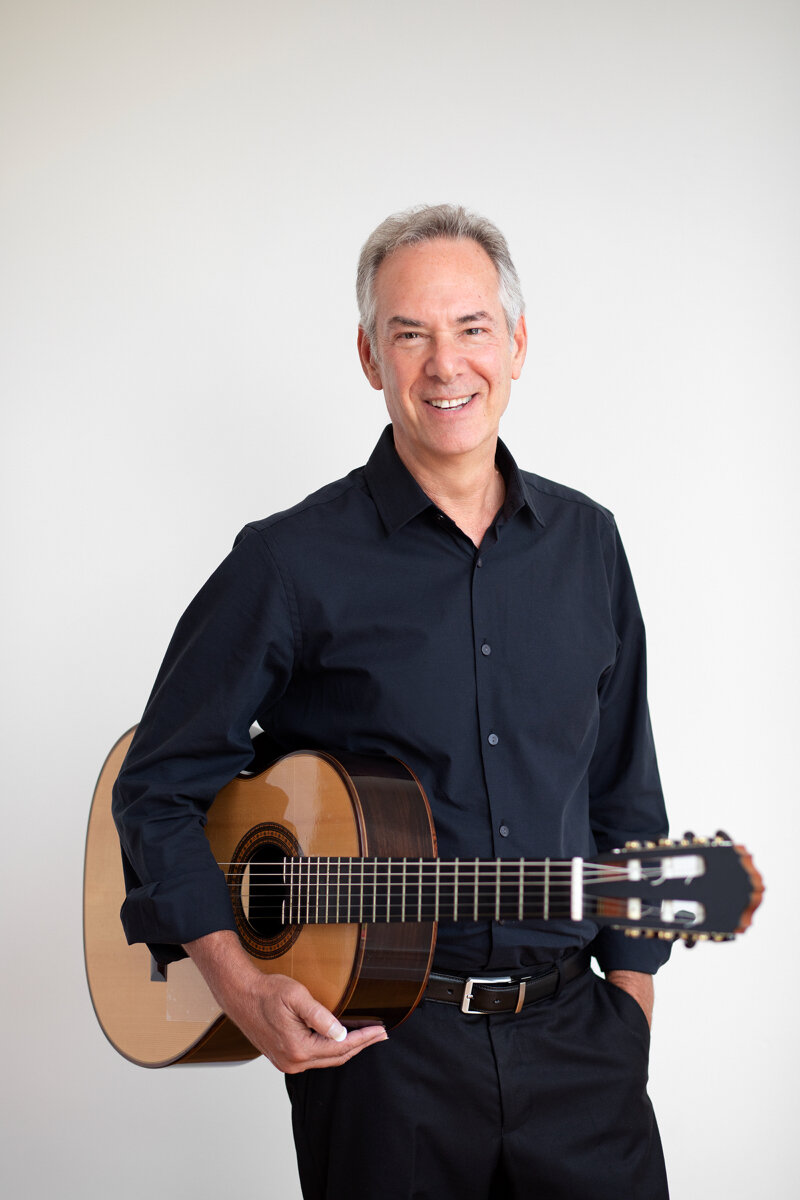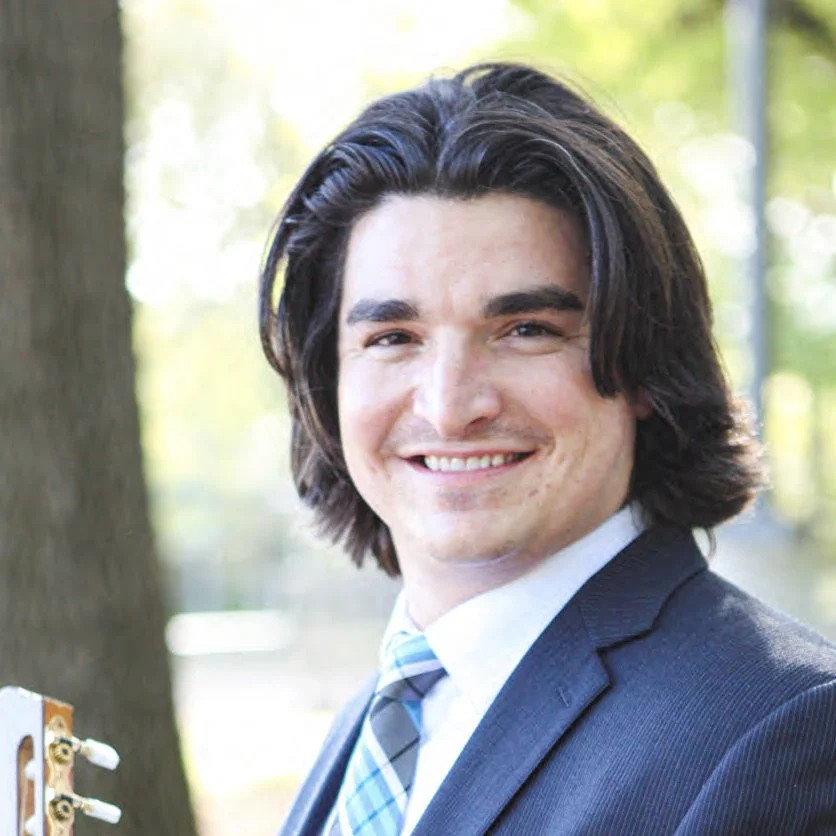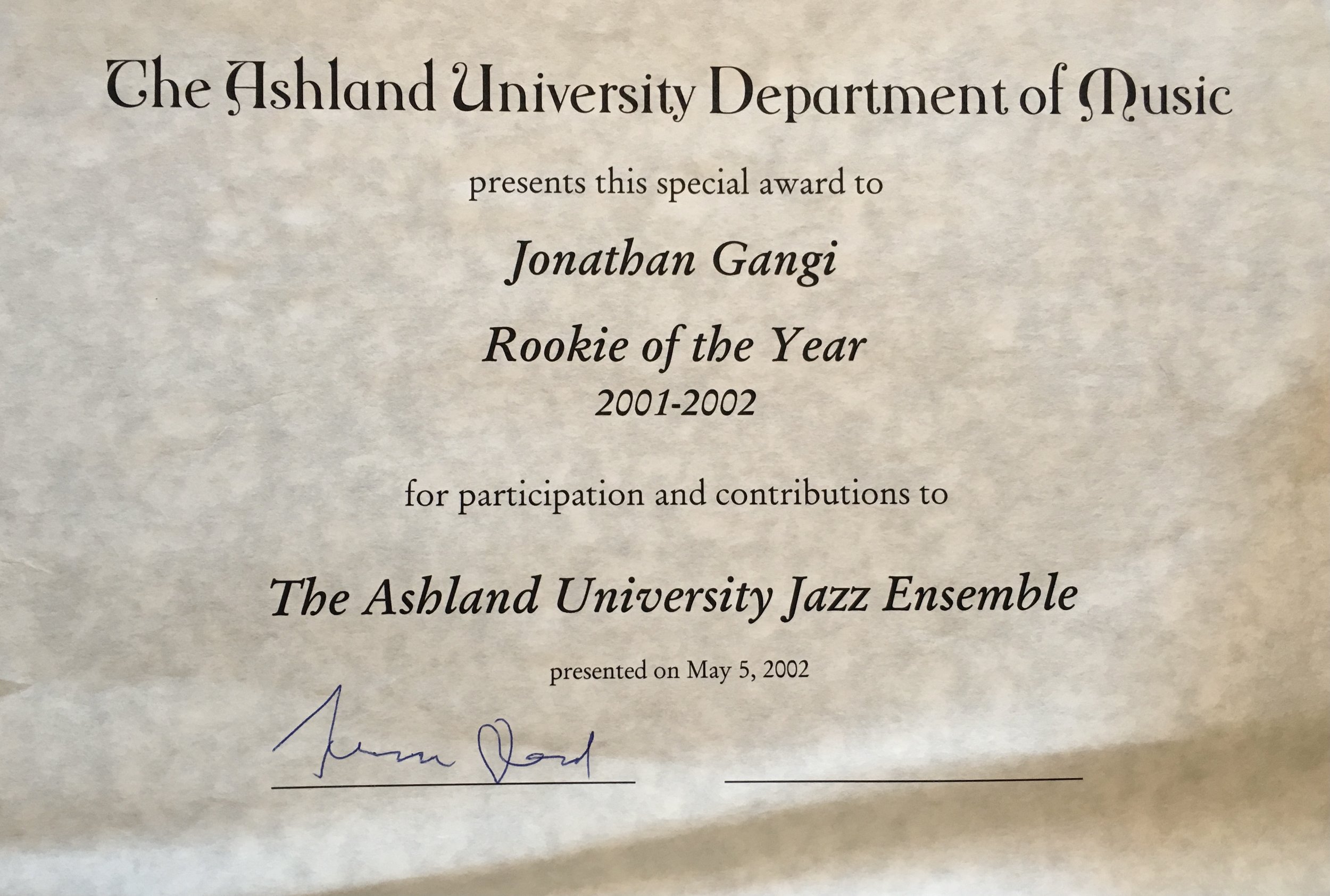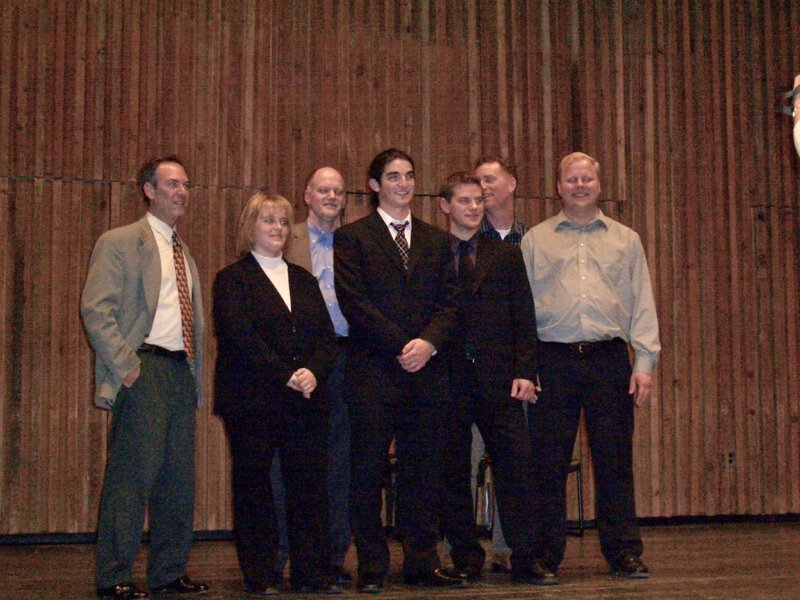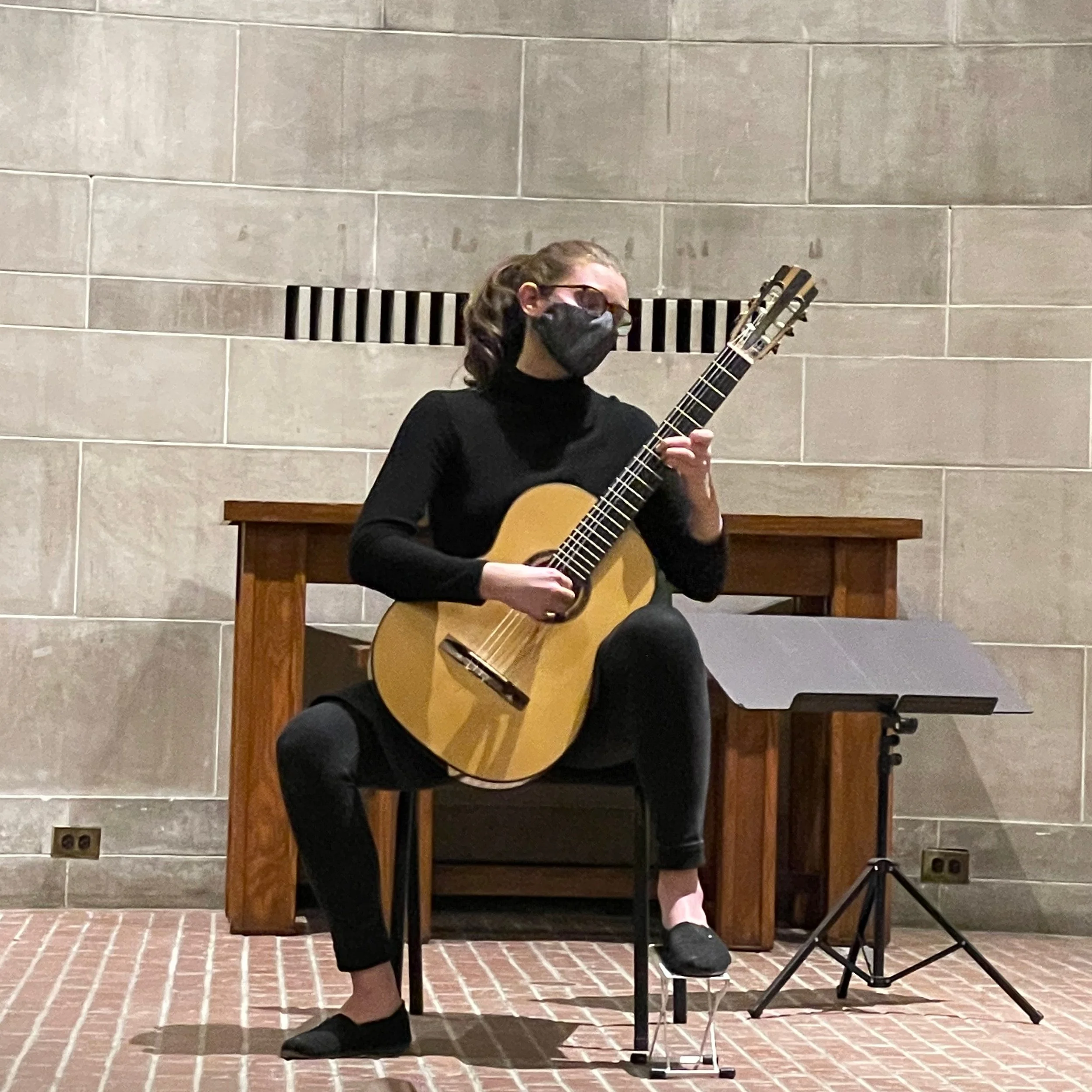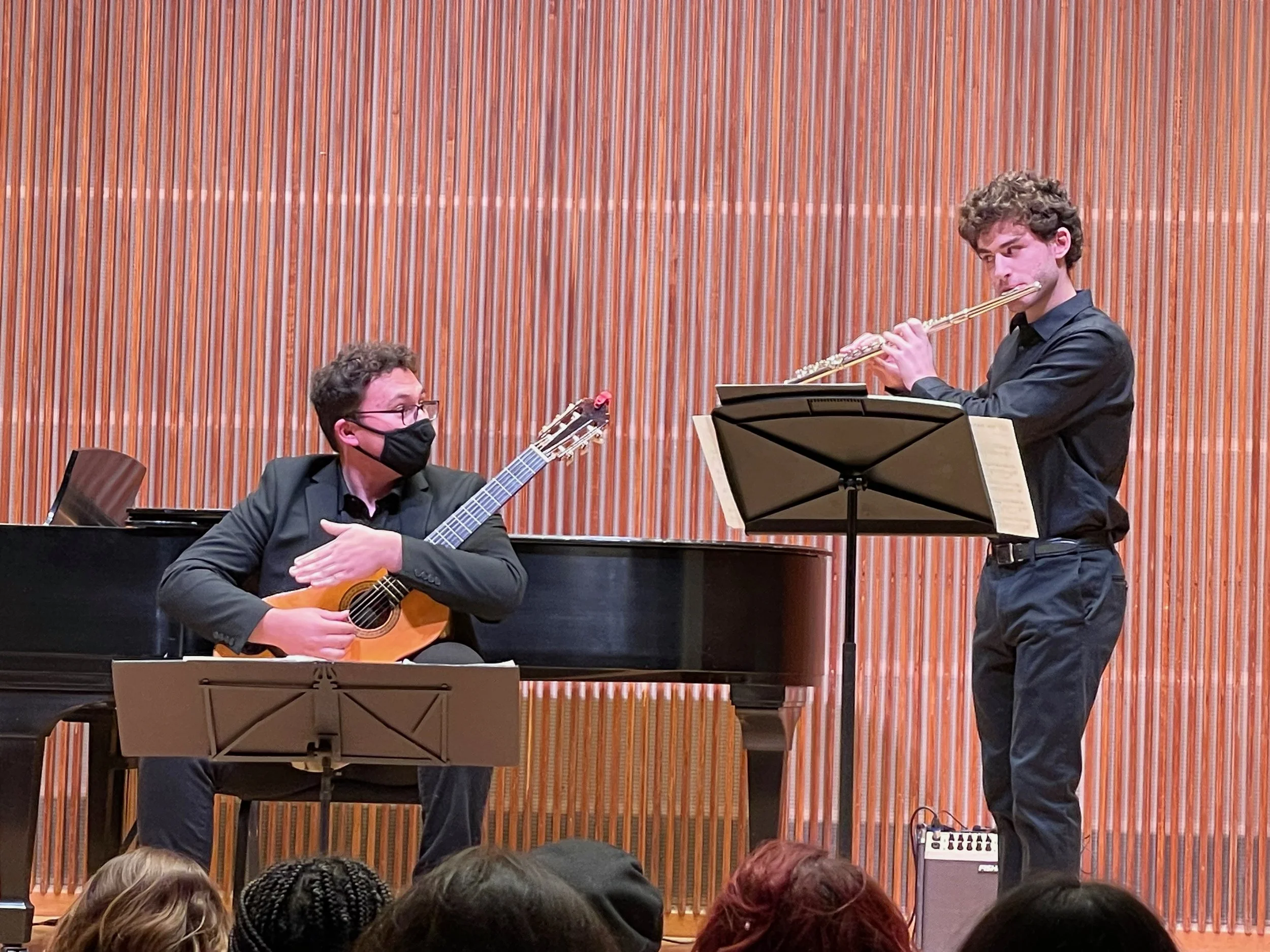Spotlight on Alumni: Jonathan Gangi
I asked my University of Akron alum, Jonathan Gangi to write a piece for this blog after he was hired for a very impressive teaching position. It took him a while to get to it, but now, finally here, I am thrilled and delighted to present him, in his own words, in a remarkable and inspiring story of perseverance and success. Here he is:
“Writing my story is quite a challenge, so much so that it has been years since Steve first invited me to share my experiences. Steve’s impact in my life is so profound that I struggle to express it! I know he doesn’t want me to make this piece about him, so I will try to strike a balance between his role as my teacher/mentor and my experience: the personal agency of a student/emerging professional.
Jonathan Gangi today.
My Dad, Jim Gangi, is a guitar builder but also plays guitar. When I was young I wanted to play to emulate him. He began teaching me when I was around 7. I first learned to read music and play using Aaron Shearer’s Classical Guitar Technique, Volume 1. At about 12, I stopped playing guitar and became passionate about playing baseball. My dream was to play Major League! I didn’t play guitar again until I was 19.
Jon Gangi at 19.
After high school I wasn’t recruited to play baseball in college. In my effort to try out for college teams, I simply didn’t succeed. I became depressed and saw no future for myself: baseball was the only thing I wanted to do. As a coping mechanism, I remember one day during this period playing my Dad’s guitar for the first time in so many years, and experiencing it as a form of therapy—as a way to express my emotions. This was how I began playing guitar again: as a response to my dashed hopes and dreams.
During that same year, I worked for a local construction company framing houses, even during the long, brutally cold northern Ohio winter. I hated it! Knowing I didn’t want to work contruction for a living, I realized I had to go to college. I ended up attending Ashland University in my hometown, Ashland, Ohio. I started as a Business Administration major. I was still playing guitar as a hobby during this time, and I loved it. After my first year, I changed my major to music and found I was the only guitar major at Ashland University. I studied classical guitar there with James Marron. I also played jazz guitar in the jazz band and somehow was voted “rookie of the year”! This affirmation felt like a type of redemption after my baseball failures. “Rookie of the Year” is a common award in baseball too, so the award resonated with me.
At that time, some of my siblings and friends liked to go swing dancing. I met Steve Aron and his wife JoNell at a local swing/ballroom dance event. I heard he was a classical guitar teacher and, since he lived near my family, I started taking lessons with him that summer. During my first year as a music major at Ashland University, someone made a joke about how a pizza can feed a family of four better than a guitarist, and I did not think this was funny! It made me angry actually, so when I met Steve Aron and saw the big new house he was building, I had solid evidence that not all guitarists were poor, and I found myself feeling motivated to emulate Steve!
I transferred that summer to study with him at the University of Akron. My work with Jim Marron greatly helped prepare me for a successful audition for Steve’s program. While an undergraduate there, I played a Junior and Senior recital, and at Steve’s suggestion and with his help, I organized a concert tour prior to each recital. I played about twelve concerts all around Ohio at libraries and churches before I performed each of my “degree” recitals on campus. This was a tremendous learning experience—my playing grew incredibly confident through these tours. I also made CD’s of my playing and sold them after my concerts while on tour.
Jon Gangi, second from left, playing in the Flamenco Ensemble at the U of Akron, with Mir Ali, 4th. Also pictured: Kim Fox, Dan Korban and Steve Sloan.
At Steve’s encouragement, I also found guitar teaching gigs at local music stores in Akron and Ashland as well as regular playing gigs at restaurants and coffee shops. I also found a job leading worship at a local church. All of my work during my undergraduate years was with guitar and music, and I was able to comfortably cover all of my living expenses. I did not know it at the time, but I was being entrepreneurial. Steve just called it hustling.
Jon Gangi, center, as a finalist in the James Stroud Guitar Competition at U Akron. L-R Stephen Aron, Kim Fox (finalist), Stroud, Gangi, Steve Sloan (finalist), Rusty Jones (alum and judge), Adam Sarata (alum and judge).
After I finished my Bachelor of Music in classical guitar at the University of Akron, Steve invited me to stay on by offering me a teaching assistantship while pursuing my Master of Music in guitar. It was during this period that the most significant event in my career occured. Steve suggested that I fulfill the requirements of a required two-credit independant study course by starting my own classical guitar festival and competition. When he first mentioned it, I thought he was crazy. The thought of doing such a thing made me feel scared out of my mind! I had no idea how to do such a thing. He told me he would mentor me through it, as he’d had plenty of experience producing music festivals, including the largest one in the western hemisphere, the Guitar Foundation of America International Convention.
So, as his part in advising me for this “course,” Steve began meeting with me weekly at the Starbucks on campus. He helped me create a to-do list for creating a festival from nothing, and I would work on it during the week and report on my progress the next meeting. This process led to the first iteration of the Rosario Guitar Festival and Competition, held at the Art Center in Ashland, OH. Steve, James Marron, and Mir Ali each donated their time, performing headliner concerts and judging the competition. Their contributions helped the event to be a success. A good number of competitors entered, from all across the country, and there was a sizeable audience at the concerts. My family helped me to run the “box office” and sundry tasks as needed. I drummed up some local financial support and sold advertising in our self-produced program booklet. Running this event was such a rewarding experience that I ended up producing the festival several more times, each time in a new location. I soon had a national profile as the Director of the Rosario.
The second Rosario Guitar Competition, in Mansfield, OH. L-R: Stephen Aron, Jonathan Gangi, Justin Zamm (1st), Ekachai Jearakul (2nd), Adam Kossler (3rd), Nicholas Goluses
After my years with Steve, I not only knew I’d received an excellent education in guitar, I’d also been trained to create my own career opportunities rather than passively wait for them to come to me. So, Steve set the foundation of both my artistic work and my entrepreneurial work as a musician. I almost did not become a graduate assistant with Steve (I was only offered it because someone else turned it down), and if Steve had not suggested I start the festival I would not be where I am today in my career.
After Akron I began my DMA in guitar at the University of South Carolina. During my doctoral work there with guitar professor Christopher Berg, I learned of an emerging field in higher education called Arts Entrepreneurship. I was fortunate to meet the leading scholar in this field while at USC, Dr. Gary Beckman. Beckman mentored me and helped me to develop new skill sets in that area. I had always wanted to become a guitar professor and planned on teaching my students the business side of being a professional guitarist, so when I learned of this emerging field, it was a perfect fit for my experiences and interests. My topic for the written portion of my dissertation was on Arts Entrepreneurship Education; I’m grateful to Christopher Berg for permitting to me to choose such a non-conventional topic.
The Rosario Guitar Festival flyer, now in South Carolina. Gangi’s new guitar professor, Christopher Berg, is pictured first.
Gary Beckman moved to North Carolina State University and hired me to help him teach and build a program. I was still finishing my DMA at USC while I was living in Raleigh and working at NC State. While there I was invited to perform Rodrigo’s Concierto de Aranjuez with the Raleigh Civic Chamber Symphony. I was also able to count it as one of the required recitals for the completion of my DMA. It was a wonderful experience to play that gorgeous, iconic work with an orchestra.
Gangi plays the Aranjuez with the Raleigh Civic Chamber Symphony
After two years in Raleigh, I won a full-time position at Pennsylvania State University to start an Arts Entrepreneurship program! This was a real job at the state’s flagship campus in State College, PA. My program is housed at the “college level” in the College of Arts & Architecture, rather than in one of our four schools (School of Music, School of Visual Arts, etc). This means that I report to an Associate Dean for the curricular portion of my job, but my tenure home is in the School of Music so I also report to the SoM Director. My Arts Entrepreneurship courses are for all students in our college and are also open to any students at the University.
There is no doubt in my mind that without Steve Aron’s early impact on me, especially in starting the Rosario Festival, there is no way that I would be where I am now. It was the combined impact of many mentors that helped me to eventually become a tenured professor at Penn State. When I was first hired at Penn, there was the possibility of teaching guitar, and over the years, this is exactly what I’ve built. I am now in charge of both a full-fledged classical guitar program and the Arts Entrepreneurship program. It is truly a dream job. While I’ve worked extremely hard to get to where I am, without the support of my wonderful mentors, I would never have been able to win this job.
Gangi’s first solo CD
I recently released my first album, Gangi Plays Gangi Volume 1: Delizioso. A few years ago the School of Music added a new recital hall. It is absolutely gorgeous; I’m so happy I was able to record my album in that space. Mario Gangi (1923–2010) was one of the most important Italian classical/jazz guitarist of the 20th century; he taught at the Conservatorio di Musica Santa Cecilia in Rome. Mario and I share not only a love of classical and jazz guitar music but also the same name, and both our family’s origins can be traced to Sicily. My great-great grandfather, Rosario Gangi, came to New York from Sicily in 1904; I am connected to Mario and his music on many levels, and excited to be the first Italian American guitarist to record it.
My wife Brooke and I have four young daughters, Laciana, Ciara, Bria, and Savanna. Laciana and Ciara have started school. Bria and Savanna help to make sure Brooke is not bored at home while I’m at work!
Jonathan and Brooke Gangi with their first three daughters, Laciana, Ciara and Bria. The new one, Savanna, just arrived in December, 2021.
A few takeaways: Failure is only failure if you let it be. Mentors are so critically important. Work harder than you think you can, push your limits. You don’t know what will happen in the future, but if you are being proactive and doing good work you are much more likely to succeed than if you wait around at home for someone to reach out to you. I know this last one is obvious, but it’s too easy to do nothing, and then complain that nothing happens!
It is possible to create and shape your professional future, if you believe it and take action. Steve Aron helped me learn that early on and I am forever grateful to him for his impact upon my career and life. Thank you so much Steve!”
And I thank you Jon, for being a great friend through the years and terrific example to my other students in the companion-arts of guitar and entrepreneurship!
Check out Jon’s CD: it is gorgeous!
